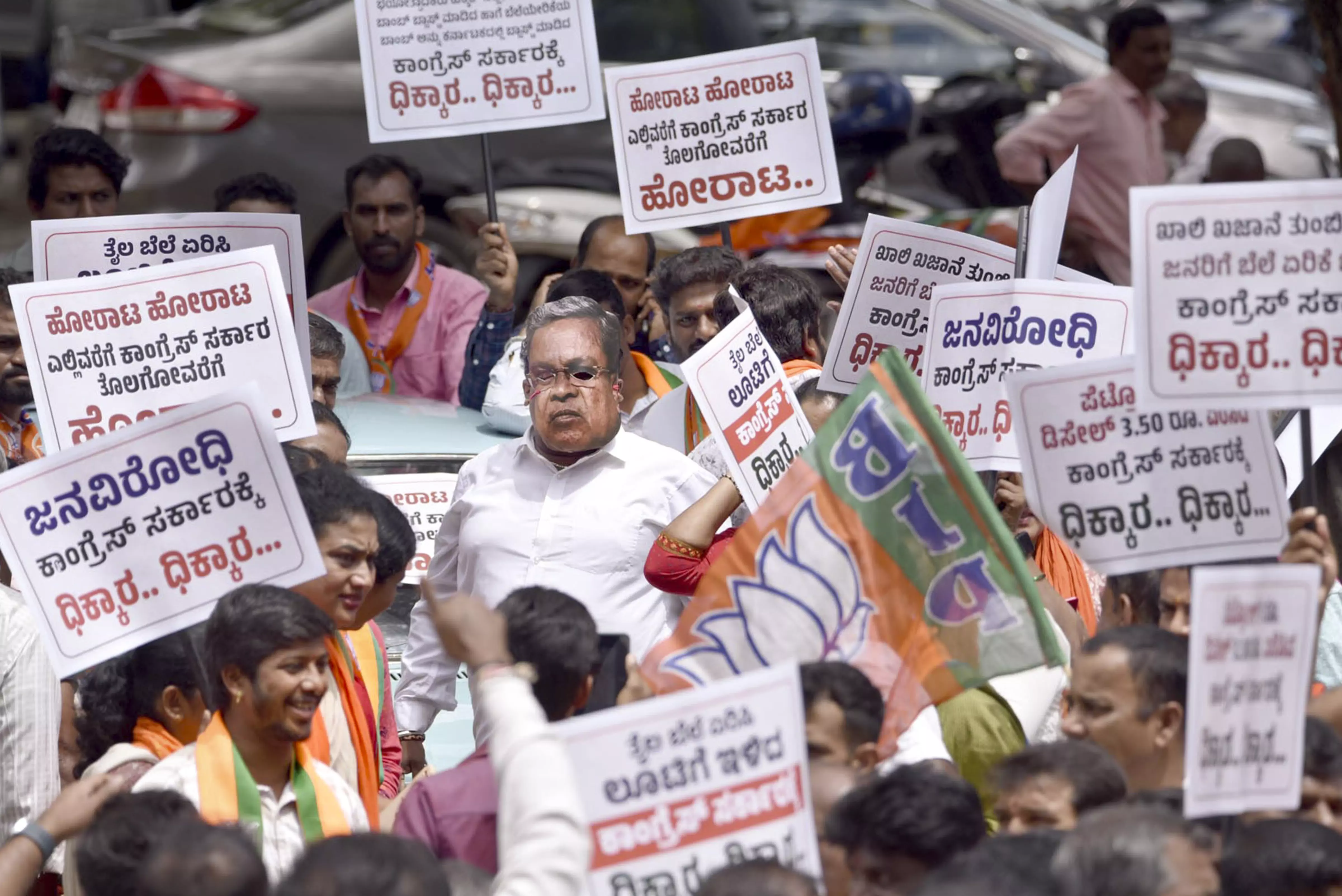
How consultant BCG advises Karnataka govt to fund guarantee schemes
Land monetisation among key recommendations in draft report by Boston Consulting Group, which has been appointed to help boost flagging revenues state revenues

The Siddaramaiah-led Karnataka government may well monetise 25,000 acres of land near Bengaluru to raise resources of ₹5,000 crore to fund its five ‘guarantee’ schemes.
Monetisation of land is one of the key recommendations made in a draft report by the Boston Consulting Group (BCG), which has been appointed as a consultant to boost the flagging revenues of the cash-strapped Congress-led Karnataka government.
New revenue sources
Besides asset monetisation, BCG has suggested identifying new revenue sources in departments such as mining; trimming expenditures in big spending departments like irrigation, energy, Public Works Department; plugging leakages and giving more stress on identifying initiatives for tax compliance in GST and property tax.
According to media reports quoting government sources, BCG has advised the government to explore innovative funding sources, foster public-private partnerships (PPPs), and broaden the taxpayer base to enhance Karnataka's tax revenues.
The focus will be on commercial taxes, road tax, excise duties, and land registration fees/stamp duties.
Monetisation of land
One of the major proposals suggested by BCG to the state government is to monetise around 25,000 acres of land near Bengaluru.
A report in Deccan Herald said the government has identified 15,000 acres in Nandagudi (Hoskote) and 9,800 acres in Bidadi belonging to the Bangalore Metropolitan Region Development Authority. Townships or satellite towns are proposed to come up in these areas.
By enabling infrastructure, housing, industrial layouts, and IT corridors, the government hopes to increase land value and monetise some of the land to raise funds for development. Also, 300-400 acres divided in 73 land parcels will be monetised and vacant lands of the Bangalore Development Authority are also being looked at, added the report.
Dire need of funds
The Siddaramaiah-led state government is desperately trying to mop up funds for the implementation of its much-touted five guarantees.
These five guarantees have cost the exchequer ₹36,000 crore in 2023-24 pushing the state into a revenue deficit. To fund these schemes this fiscal year, Siddaramaiah has allocated a whopping ₹52,009 crores.
The state government is actively seeking initiatives for tax compliance. Recently, deputy CM DK Shivakumar, who oversees Bengaluru Development announced a One Time Settlement (OTS) to clear overdue property tax in the city. This facility will be available until July 31. The BBMP had not actively pursued property tax outstandings due to elections, he said, urging people to clear their outstanding payments.
The OTS scheme provides 50 per cent concession on penalties and 100 per cent concession on interest payments.
Tax compliance
The BCG has also advised more stress on tax compliance in GST and property tax and will identify schemes to increase compliance and broaden the taxpayer base to enhance Karnataka's tax revenues.
The BCG will also help to suggest ideas to enhance non-tax revenues, trim expenses, explore innovative funding sources, and foster public-private partnerships (PPPs).
The government is also looking at controlling and curbing the expenditure of big spenders like the departments of irrigation, energy, public works department, rural development and Panchayat Raj Department. In the energy department, for example, said reports, the subsidy for irrigation pumps and the Gruha Jyothi guarantee form 97 per cent of the allocated budget. There is a possibility here for rationalisation, said sources in media reports.
The Karnataka government’s goal will be to raise more resources, better manage expenditures, and plug leakages in revenue collections without burdening the citizens.
What's up already
Meanwhile, to generate additional revenue to fund guarantees, the state government increased fuel prices by ₹3 per litre effective from June 15. The government raised Karnataka Sales Tax (KST) on petrol from 25.92 per cent to 29.84 per cent and from 14.3 per cent to 18.4 per cent on diesel.
Petrol and diesel prices are likely to go up by around ₹3 and ₹3.05 in the state due to this increase, as per Petroleum Dealers Association.
MB Patil, state minister for commerce and industries, reportedly defended the price hike saying that they need money for guarantees and development. The increase in fuel prices, petrol and diesel rates in Karnataka, however, remain lower than in other states, he added.
The Karnataka government has also hiked up guidance value of properties by 15-30 per cent, imposed an additional excise duty (AED) on Indian-made liquor (IML) by 20 per cent on all slabs and AED on beer from 175 per cent to 185 per cent, imposed a 3 per cent additional cess on newly-registered transport vehicles. Besides this, they have slapped a lifetime tax on EVs (electric vehicles) costing above ₹25 lakh.

